As a parent, witnessing your toddler's developmental milestones is both exciting and rewarding. One such crucial aspect of your child's growth is symbolic play. Understanding the stages of symbolic play can provide valuable insights into your toddler's cognitive and emotional development.
In this guide, we'll explore the five stages of symbolic play and how they contribute to your child's overall growth.
Understanding Symbolic Play |
The Role of Age in Symbolic Play |
Stages of Symbolic Play |
Nurturing Symbolic Play with Pixsee Play and Pixsee Friends |
Understanding Symbolic Play
Symbolic play, also known as pretend play, is a vital component of a child's development. It involves using objects, actions, or ideas to represent something other than itself. This type of play allows toddlers to explore their imagination, enhance social skills, and develop problem-solving abilities. As a parent, recognizing the significance of symbolic play sets the stage for fostering a creative and inquisitive mind in your child.
You might also want to know When Does Pretend Play Start in Toddlers?
The Role of Age in Symbolic Play
Symbolic play evolves as your child grows, with each stage building upon the previous one. Age plays a crucial role in determining the complexity and sophistication of your toddler's symbolic play. Understanding age-appropriate expectations can guide you in providing the right toys and environment to support your child's development.
Stages of Symbolic Play
Imitative Play (12-18 months)
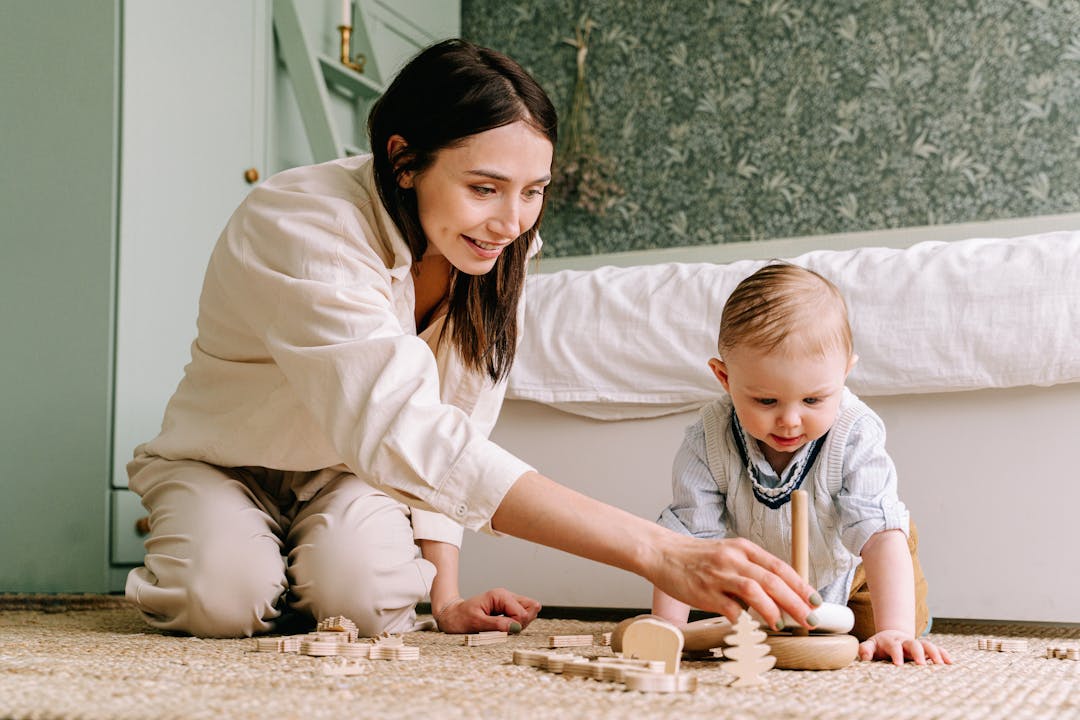
During this stage, toddlers mimic actions seen in their daily lives, engaging in simple role-playing with familiar objects to understand and replicate activities in their environment.
- Mimicking actions observed in everyday life.
- Simple role-playing with familiar objects.
Functional Play (18-24 months)
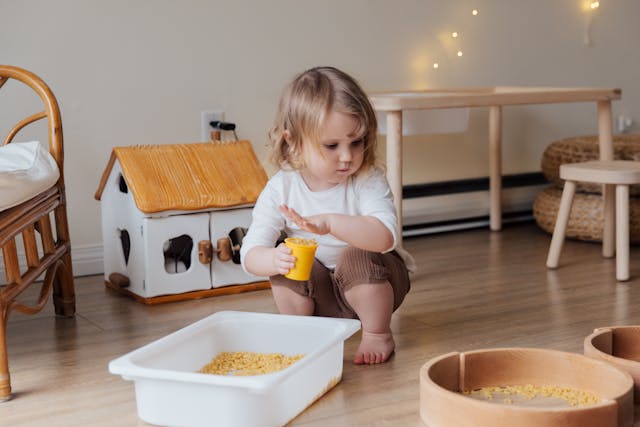
In this phase, toddlers shift to using objects for their intended purposes, showcasing emerging problem-solving skills and developing an understanding of cause-and-effect relationships.
- Using objects for their intended purpose.
- Basic problem-solving skills emerge.
Symbolic Play (2-3 years)
 Symbolic play emerges as toddlers engage in pretend play, using objects to represent other items, fostering imagination and creativity in exploring different scenarios and roles.
Symbolic play emerges as toddlers engage in pretend play, using objects to represent other items, fostering imagination and creativity in exploring different scenarios and roles.
- Pretend play with objects representing other items.
- Imagination and creativity blossom.
Thematic Play (3-4 years)
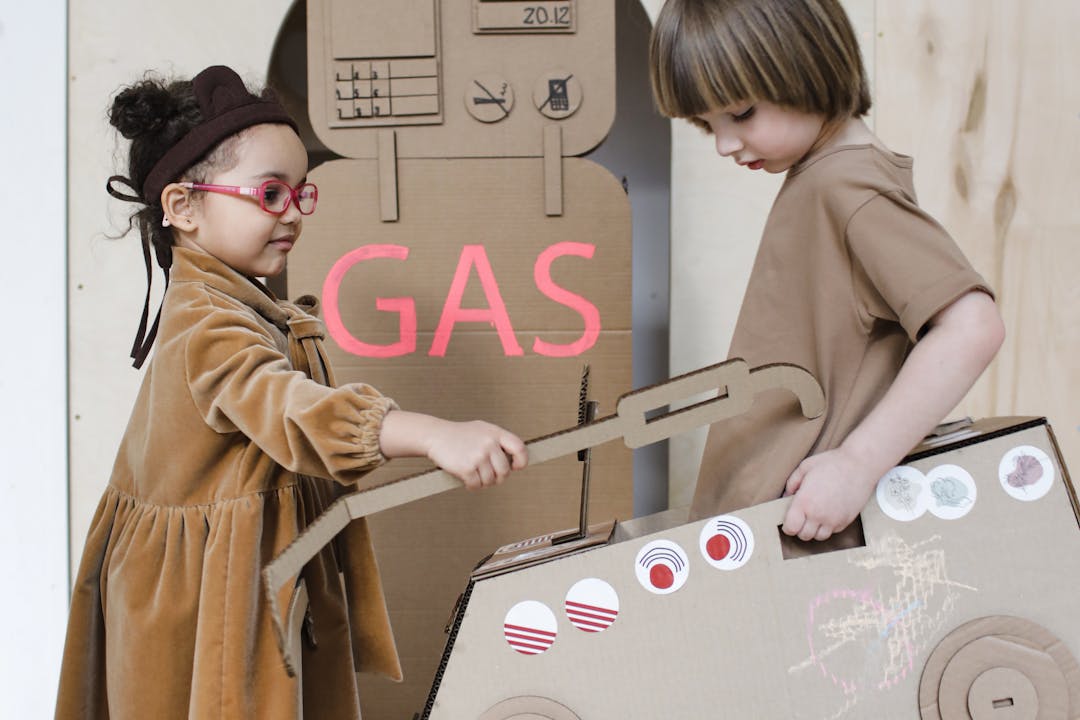 Children in this stage create stories and scenarios during play, incorporating multiple objects into imaginative play, enhancing storytelling skills, creativity, and the ability to organize thoughts.
Children in this stage create stories and scenarios during play, incorporating multiple objects into imaginative play, enhancing storytelling skills, creativity, and the ability to organize thoughts.
- Creating stories and scenarios during play.
- Incorporating multiple objects into imaginative play.
Sociodramatic Play (4-6 years)
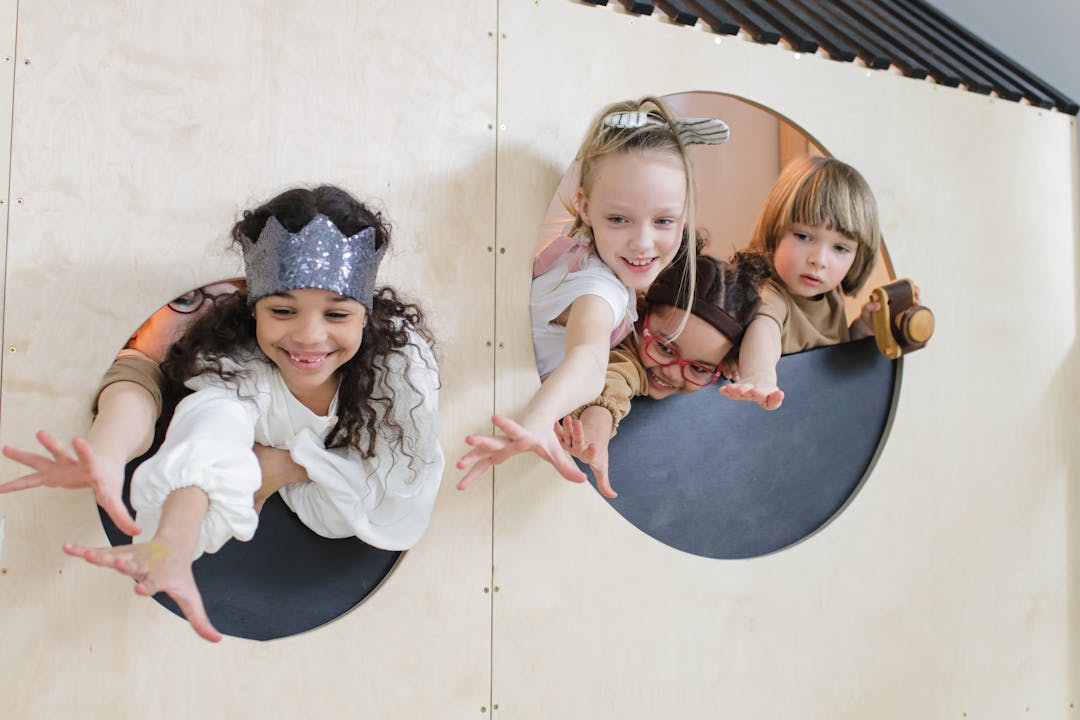
This stage introduces collaborative play with peers, involving elaborate role-playing and storytelling, fostering social skills, teamwork, and empathy through imaginative and cooperative play.
- Collaborative play with peers.
- Elaborate role-playing and storytelling.
Nurturing Symbolic Play with Pixsee Play and Pixsee Friends
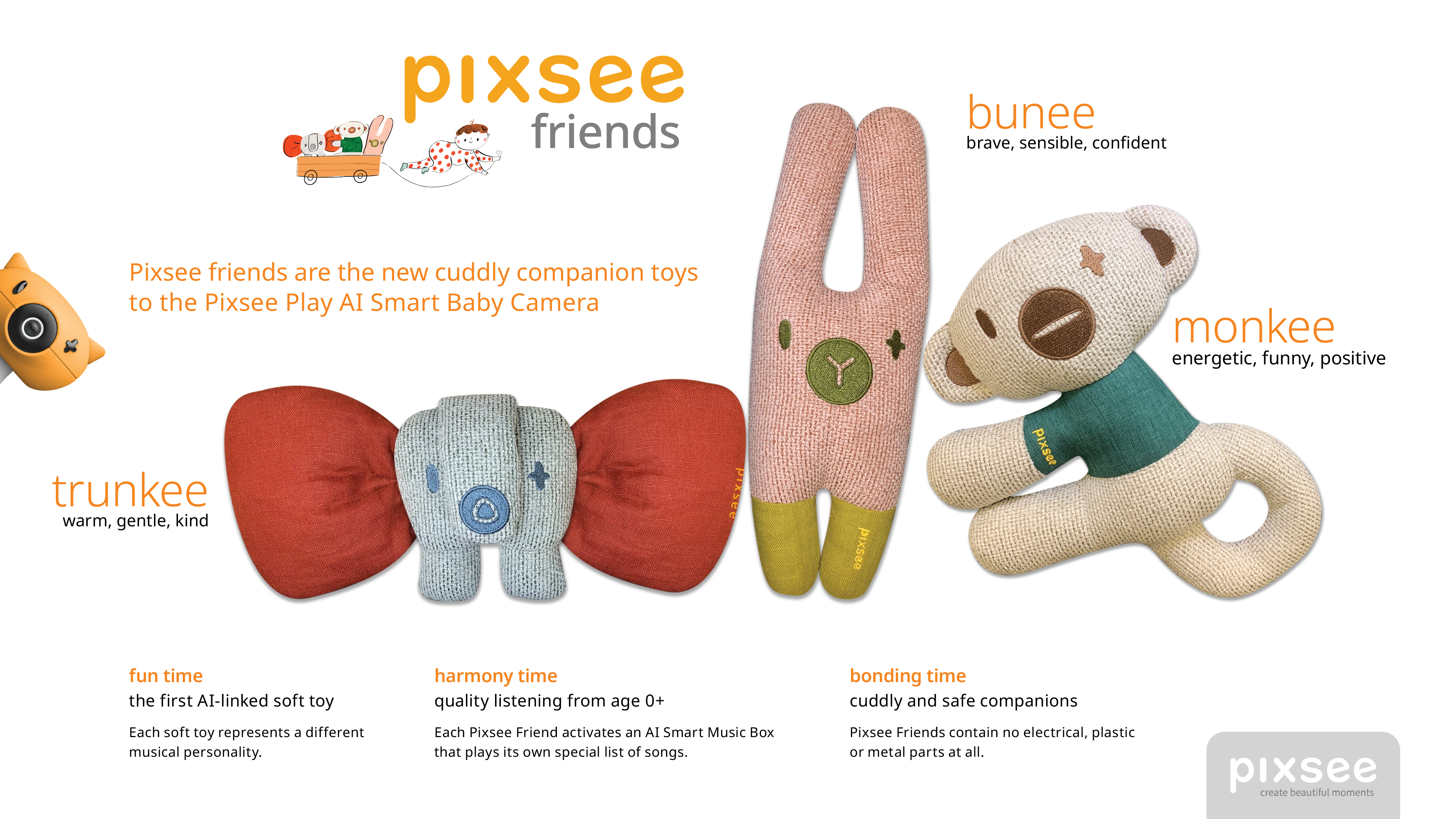
As your toddler progresses through these stages, providing the right tools for pre-symbolic play becomes crucial. Pixsee Play and Pixsee Friends are the perfect companions for this journey. Pixsee Play ensures your little one's safety during exploration, offering real-time connectivity and interaction. Pixsee Friends, soft toys with unique personalities, not only promote cognitive and emotional development but also interact seamlessly with Pixsee Play, creating a magical play environment for your child.
In the fast-paced world of parenting, Pixsee Play and Pixsee Friends stand out as innovative solutions designed to cater to tech-savvy, time-starved parents. Embrace these tools to capture precious moments and nurture your child's growth in the most engaging way possible.
Remember, every stage of symbolic play is a step closer to a world of boundless imagination and exploration for your little one. Visit Pixsee Shop or Amazon online store to discover why Pixsee can be your companions on this incredible parenting journey.







